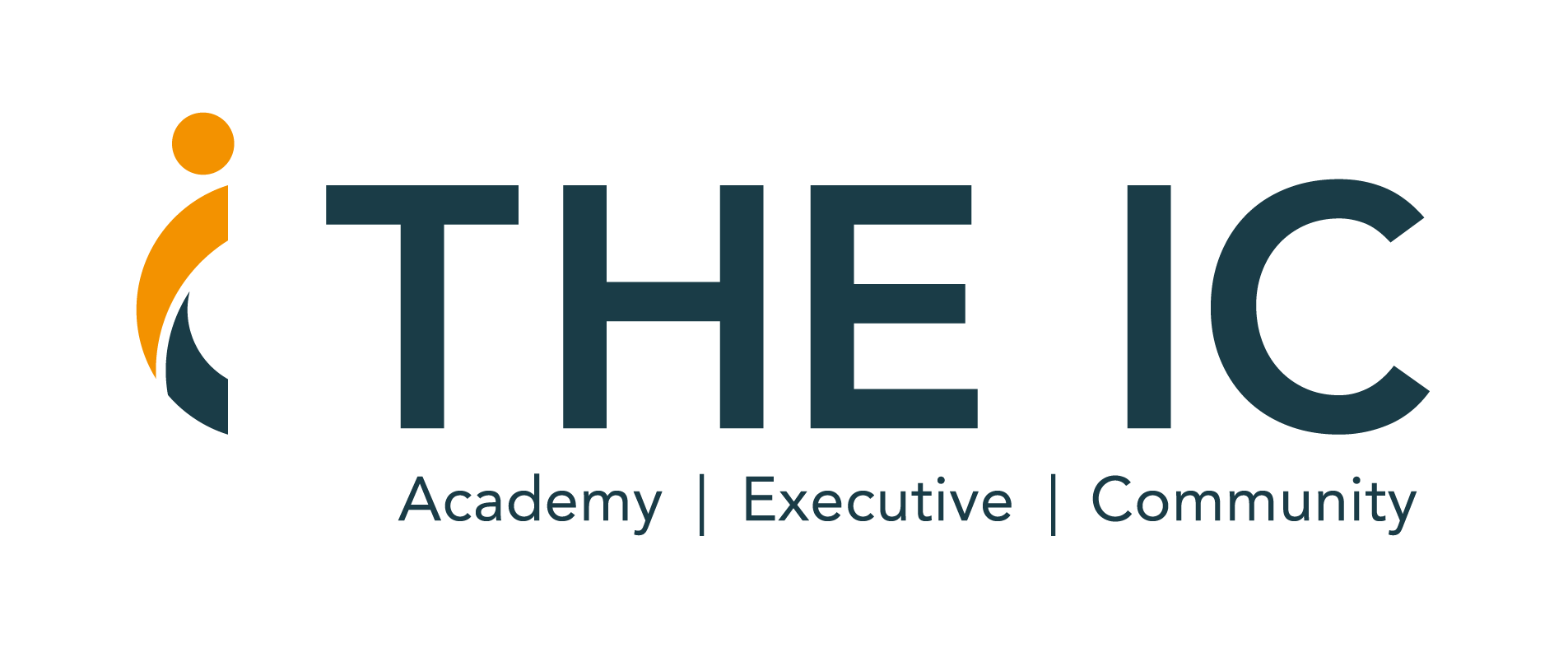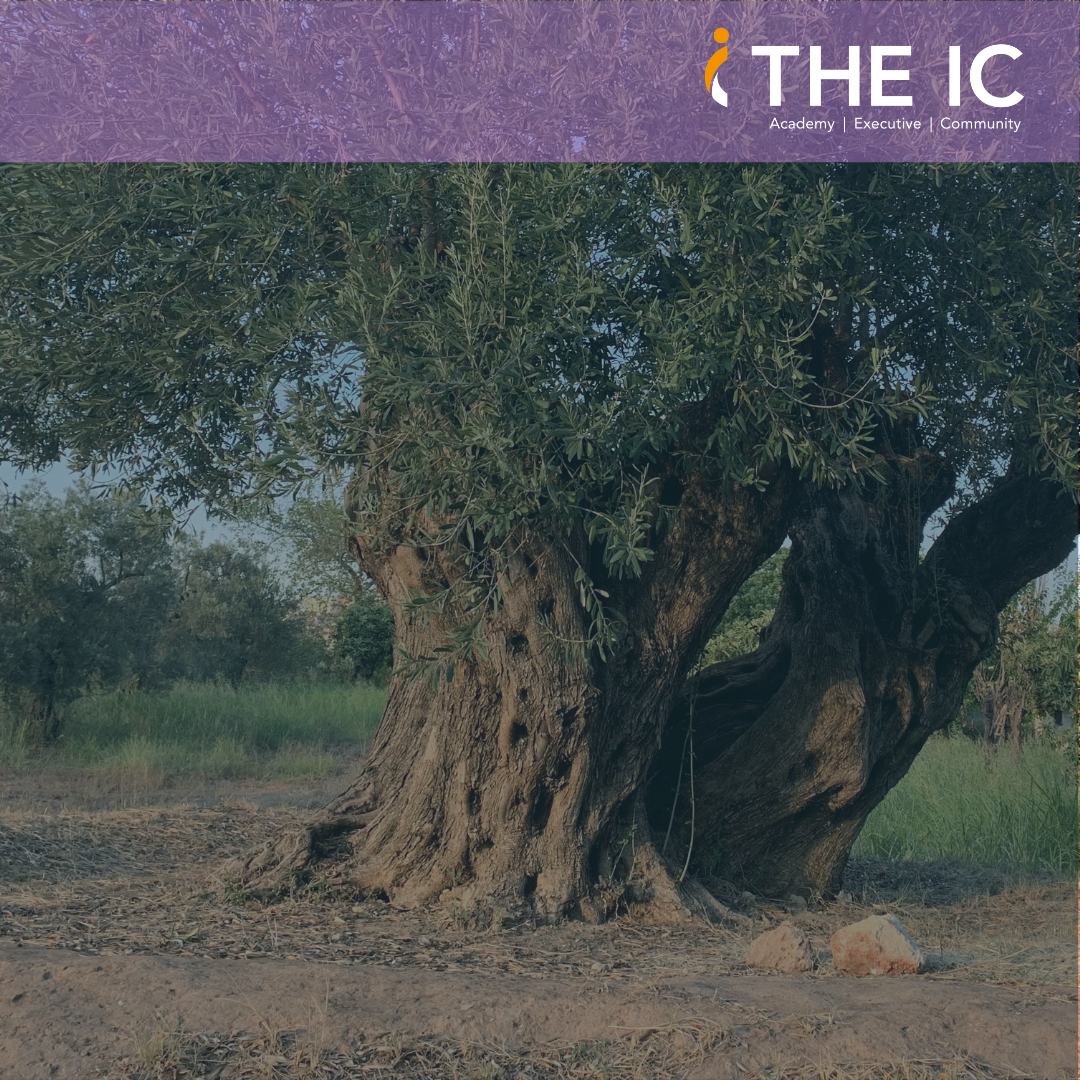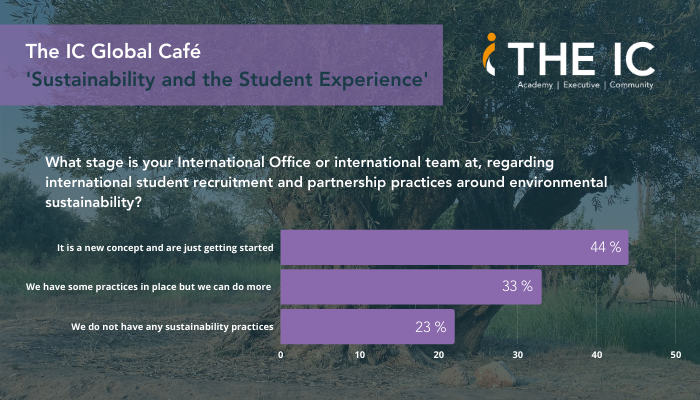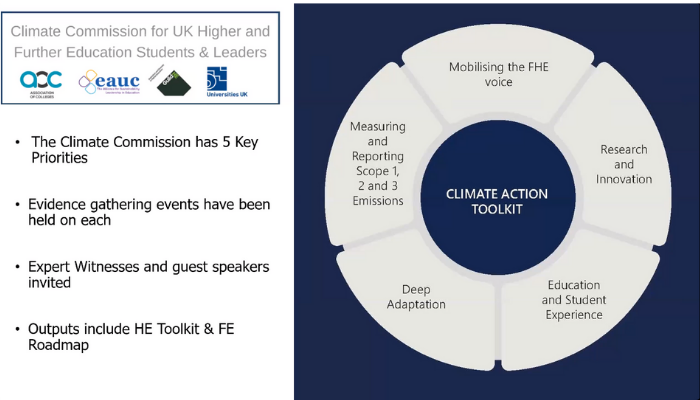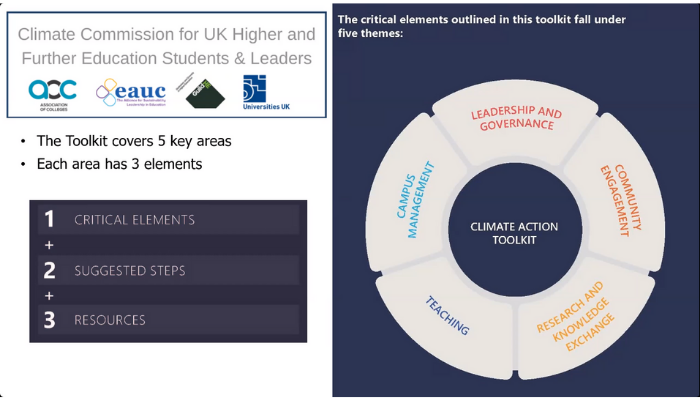The IC Sustainability Month of May 2021
The IC has celebrated Sustainability in the month of May. We focused on what we can do in the education sector in the area of internationalisation and global engagement to support action against climate change. We shared best practice when implementing sustainability strategies and developing initiatives. Our timing was designed to align with the UN’s World Environment Day and the British Council’s Going Global 2021 conference, which features The IC’s Sustainability, Environment, Our home poster, which was selected for the conference’s virtual gallery. Key learning outcomes from our Sustainability Cafes are below.
Sustainability and the student experience
In May’s first sustainability Cafe, Melissa Lee, Founder and CEO of The GREEN Program (“TGP”) and one of their alumni Leonie Paul, Research and Teaching Assistant at Uppsala University, highlighted the importance that current students place on sustainability; including paying more for sustainable products; its impact on their decision of which institution to study at, as well as which organisations to apply for jobs in. Melissa noted that universities should be doing more to invest in, educate and inspire students to become good global citizens and look at all ways of reducing waste and not just the obvious solutions. We ran a poll within the Cafe to ask where institutions are in terms of their sustainable development education and practices. The results are below:
Institutions’ Overall Environmental Impact
This Cafe’s poll shows that 62% of institutions have or are developing a sustainability strategy which is promising, especially given a recent THE poll showed that students valued sustainability over the location of their institutions, although the figures were low.
Dr Janet Ilieva, Founder and Director at Education Insight also noted that research-intensive universities tend to have significantly higher carbon footprints, whereas institutions with large TNE or part-time populations are much lower. Online delivery such as virtual mobility and internships can help in this area but there are worries that financial pressures may take priority over sustainable development. Ultimately however, students will demand to know more about how their institutions engage with sustainability and tackle climate change and so institutions owe it to their students to respond accordingly.
Dr Weiyan Xiong, Research Assistant Professor at Lingnan University introduced the work UK HEIs are doing to achieve sustainable development goals on campus. In 2010, 8 Public Hong Kong universities issued a declaration to respond to the UN’s SDGs and in the same year a consortium of volunteers was created to help coordinate efforts and implement changes to achieve a more sustainable approach to their work. The approach was bottom up, to achieve buy-in from staff and students.
In the future, the consortium wants to move away from being an operational group to taking more of a leadership role, acting as a knowledge hub at an institutional and student level and with the local community.
Sustainability in internationalisation
Professor Eunice Simmons, Vice Chancellor at University of Chester, introduced the HE Climate Action Toolkit, produced in partnership with the Climate Commission Council, and provided numerous and detailed steps on how universities can engage with and implement sustainability in their institutions. The toolkit’s themes covered 5 areas and each one was accompanied by plenty of links to resources and best practice.
Some of the key points Eunice focused on were to:
- consider moving sustainability teams and professionals centrally within a university to raise their profile and influence
- ensure sustainability roles have a seat at the top table in an institution
- recognise the climate anxiety students are facing about their futures
- review partnerships to ensure they are sustainable and effective
- empower students to develop a purpose for their travel as a climate emergency means we can’t take travel for granted any more.
Speakers
In alphabetical order:
- Professor Eunice Simmons, Vice Chancellor at University of Chester
- Dr Janet Ilieva, Founder and Director at Education Insight
- Leonie Paul, Research and Teaching Assistant at Uppsala University
- Melissa Lee, Founder and CEO of The GREEN Program (“TGP”)
- Dr Weiyan Xiong, Research Assistant Professor at Lingnan University
